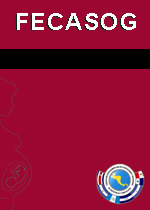When the numbers don't add up
Authors
DOI:
https://doi.org/10.37980/im.journal.revcog.20242480Keywords:
editorial, academic publishingAbstract
For years the U.S. Health System reported an alarming trend. A persistent rise in maternal mortality. According to the National Vital Statistics System, the maternal mortality rate in the US rose from 9.65 x 100 thousand live births (1996 - 2002) to 23.6 x 100 thousand live births (2018 to 2021). This behavior, with the technological advances of modern times, was unheard of and a clear sign that something bad was happening.
And yes, something was wrong, but not at the primary care level. The problem was the data tabulation system. Specifically a box on death certificates, which specified whether the death was pregnancy-related or not. Unfortunately, by mistake, this box was often checked on patients who were not even pregnant. It took a researcher, concerned about the rise in maternal mortality, to go to the primary source of information and discover the problem. If non-pregnancy related deaths were eliminated (as they should be) the mortality rate was reduced to 10.2 (1996-2002) and 10.4 (2018 to 2021). In short, almost no change.
What lesson can we learn from this monumental mistake? On the one hand, the importance of information. As researchers, the data collected is vital to reach valid conclusions that allow us to generate changes. If it is not collected correctly or if mistakes are made, no matter how small they may seem to be (such as checking a box), the consequences can be unpredictable. On the other hand, if a finding seems to be unexplained or out of the expected, do not trust. Research is the search for truth and that should be the north of those of us who dedicate ourselves to this laudable work. This does not mean that we are obliged to discover something new, but to think critically. If our knowledge tells us that something does not make sense, if an article describes something that changes known behaviors, do not accept it out of hand. A single voice should not be reason enough and the replicability of studies is one of the pillars of the scientific method.
Remember that, from time to time, the truth is within reach of an inquiring mind. From someone who wondered why?
Downloads
Published
Issue
Section
License
Copyright (c) 2024 Infomedic Intl.Derechos autoriales y de reproducibilidad. La Revista RevCog es un ente académico, sin fines de lucro, que forma parte de la Sociedad Centroamericana de Ginecología y Obstetricia. Sus publicaciones son de tipo ACCESO GRATUITO y PERMANENTE de su contenido para uso individual y académico, sin restricción. Los derechos autoriales de cada artículo son retenidos por sus autores. Al Publicar en la Revista, el autor otorga Licencia permanente, exclusiva, e irrevocable a la Sociedad para la edición del manuscrito, y otorga a la empresa editorial, Infomedic International Licencia de uso de distribución, indexación y comercial exclusiva, permanente e irrevocable de su contenido y para la generación de productos y servicios derivados del mismo.








